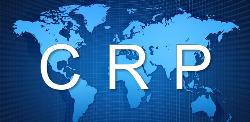This one-and-a-half conference focuses on a range of contemporary debates on global governance: How has the global economic governance architecture evolved in recent years? How have established international financial institutions responded to challenges of relevance and legitimacy? How have rising powers sought to alter global economic governance arrangements and how have developed countries reacted?



 Since the global financial crisis of 2007-08, the global economic governance architecture has come under increased pressure and scrutiny by policymakers and publics alike. Established organizations, like the World Bank or the International Monetary Fund, have been criticized for failing to foresee and prevent the crisis, and for misadvising about appropriate policy responses. Meanwhile, emerging powers have established alternative governance mechanisms, such as the Asian Infrastructure Investment Bank (AIIB), the New Development Bank (NDB), and the Contingency Reserve Arrangement.
Since the global financial crisis of 2007-08, the global economic governance architecture has come under increased pressure and scrutiny by policymakers and publics alike. Established organizations, like the World Bank or the International Monetary Fund, have been criticized for failing to foresee and prevent the crisis, and for misadvising about appropriate policy responses. Meanwhile, emerging powers have established alternative governance mechanisms, such as the Asian Infrastructure Investment Bank (AIIB), the New Development Bank (NDB), and the Contingency Reserve Arrangement.
Rather than providing definitive answers, the "Transformations in Global Economic Governance" conference takes a broad look at the shifting ground in the global economic governance architecture, and highlights the most promising avenues of inquiry for future research. For example, contributions will include novel analyses of biased decision-making in international financial institutions, new evidence on the Chinese approach toward building a regional financial regime, and new ways to understand authority in global economic governance and how international organizations exercise it.
The one-and-a-half day conference brings together leading scholars from various disciplines, including development economics, political science, geography, and sociology, and encompasses various themes of relevance to global economic governance, including trade, finance, and development. It features paper presentations, expert panels, a keynote address, and the launch of a new dataset. The conference thus seeks to set a broader research agenda for understanding—and addressing—key challenges facing the global economic system.
Information on the convenors' IMF Monitor project (data from which will be presented at the conference) is available here.
Please consult the full programme here.
Supported by the Centre for Research in the Arts, Social Sciences and Humanities (CRASSH), the Cambridge Endowment for Research in Finance (CERF), the Cambridge Political Economy Society (CPES), and the Centre for Rising Powers (CRP).
Registration for the conference is now open. Fees are £25 (full fee) or £10 (student/unwaged fee) and include all lunches and refreshments. One-day registration is also available. Registration will close on Sunday 24 September.
The conference's keynote lecture by Dr. Nancy Birdsall will be open to all free of charge. Dr. Birdsall's lecture will be on the subject of 'Climate, Africa and Governance at the Multilateral Development Banks'.


